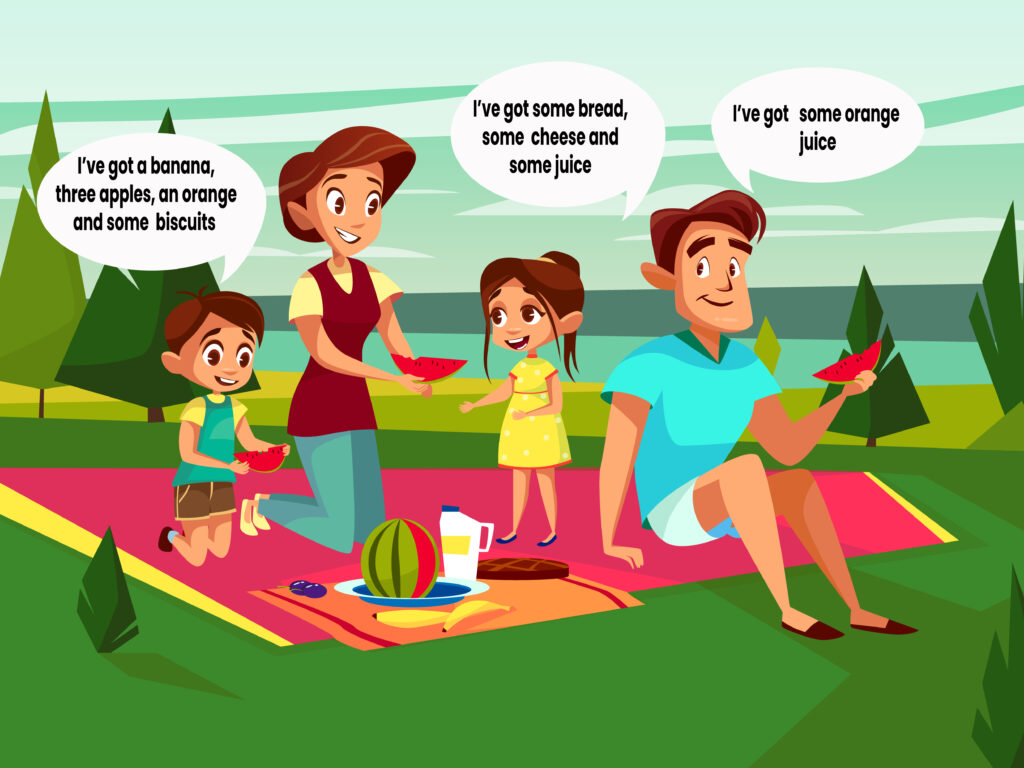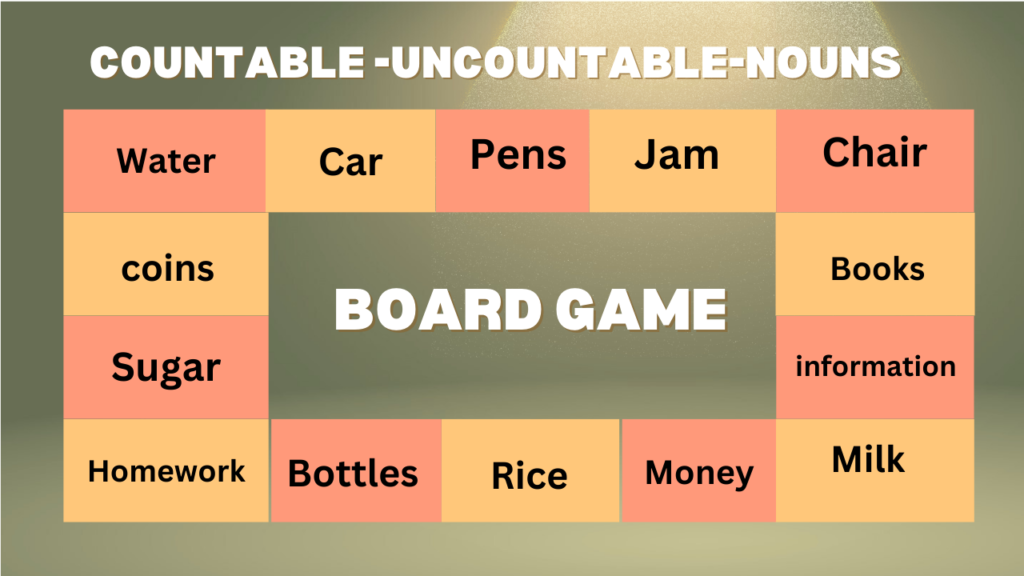Countable Uncountable nouns
Countable nouns
The nouns which can be counted are called countable nouns. They can be used in the singular or the plural. The articles ‘a’ and ‘an’ can be used with countable nouns in the singular form. We can also use one with singular countable nouns.
Examples: a book – books a hotel – hotels one week – weeks an egg – eggs
- A book is lying on the table.
- She has booked two hotels for our stay.
- I’m going on vacation for one week.
- Can I get an egg sandwich?
Read also: Day 7: Worksheet – countable and uncountable nouns
Read also: Day 6: Giving information about objects
Read also: Day 2: Giving personal information
Read also: Day 10: Household rooms and objects
Countable nouns in the plural form can be qualified by words/phrases such as a few, many, several, two or three.
Examples: a few crows many villages two oranges some students several teacher
- A few crows were sitting on the tree branch.
- Many Indian villages lack basic amenities.
- Can I have two oranges, please?
- Some students are attending the seminar today.
- Several teachers are retiring this year.
Countable Uncountable nouns

Uncountable nouns
The names of things that cannot be counted are called uncountable nouns. They do not have a plural form. They can be used only in the singular form.
Examples: fire water sugar air wood traffic food smoke
- The fire is burning brightly.
- Can you please give me some water to drink?
- Add a little sugar to your tea if you like it sweet.
- There’s not much air in this small room.
- We need some wood to build the new house.
- The traffic is moving slowly.
- Please give me some food.
- The smoke from the chimney is rising high into the air.
Countable Uncountable nouns
The articles ‘a’ or ‘an’ cannot be used with uncountable nouns. To make them plural, we add other words before them that can be counted, such as-
Examples: two spoons a cup of a glass of three kilos of two litres
- I need two spoons to eat the dessert.
- I’d like a cup of coffee, please.
- Can I have a glass of water?
- I need three kilos of sugar for the recipe.
- She bought two litres of milk from the store.
Countable Uncountable nouns
Uncountable nouns are always singular, so we use singular verbs with them.
Examples:
- Relax, there’s plenty of time left.
- Practice makes the man perfect.
- Water is essential for life.
- Happiness is a state of mind.
- Information is available online.
Countable Uncountable nouns
Uncountable nouns are often treated as countable nouns if we are talking about different kinds of material, liquid, etc.
Examples:
- Most washing powders are not very kind to your hands.
- Most oils are good for your skin.
Although ‘powder’ and ‘oil’ is an uncountable noun, here, we are talking about different kinds of the material.
Abstract nouns are often uncountable. But some can be both countable and uncountable.
Here’s the rule:
General meaning = Uncountable
Specific meaning = Countable
Countable Uncountable nouns
- I’ve had many happy moments. (Countable) (Happy – Specific)
- Happiness is a good thing. (Uncountable) (Happiness – General)
- We had a nice time when we went to the beach yesterday. (Countable)(Time – Specific)
- I couldn’t finish the report because I didn’t get enough time.(Uncountable)(Time – General)
Countable Uncountable nouns

Plural uncountable nouns
Some uncountable nouns are plural. They have no singular forms with the same meaning, and cannot be used with numbers. Common Examples: groceries, arms, remains, goods, customs, clothes, thanks, regards, police, etc.
- I’m going to buy some groceries from the market.
- The country has a strong arms industry.
- The remains of the ancient city were fascinating.
- The company imports goods from all over the world.
- We cleared customs at the airport.
- She has many clothes.
- I say thanks to my mom.
- Please send my regards to your family and friends.
- The police officer helped us find our lost car.
Countable Uncountable nouns
For regular English Speaking Course updates, kindly join our Telegram channel
Follow the Sarsa Education channel on Telegram: https://shorturl.at/R5WKa

